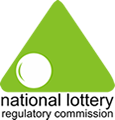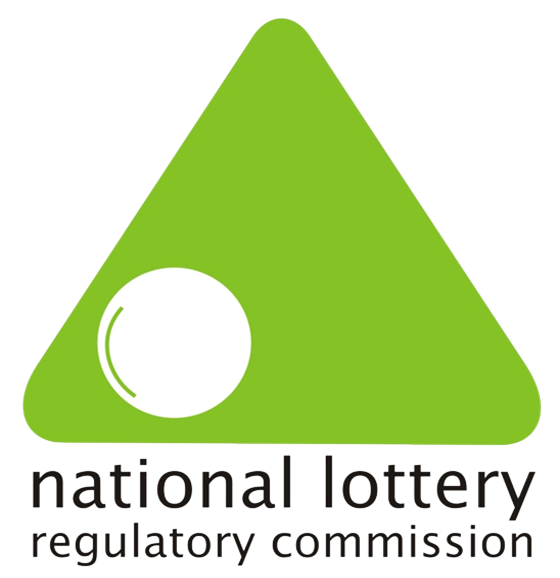
22 Apr CONSUMER SALES PROMOTION AND THE NATIONAL LOTTERY ACT 2005: The Complete Story
What is CSP
Undoubtedly, Consumer Sales Promotions (CSP) is a widely acclaimed and universally accepted business practice. The American Marketing Association (AMA), defines “sales promotion” as those marketing activities other than personal selling, advertising, publicity that stimulate consumer purchasing. The United Kingdom Institute of Sales Promotion describes “sales promotion” as “a consumer or business -directed action that enhances product appeal by offering an extra incentive to purchase or participate”.
Similarly, marketing scholars have espoused on the characteristics and objectives of a CSP. According to Kotler P. “ sales promotion” consists of diverse, collection of incentive tools – mostly short term – designed to stimulate a quicker or greater purchase of particular products or services by consumers or the chains of distributors. {See Kotler, P. (2000) Marketing Management, Analysis, Planning. Implement and Control, the Millennium Ed. (10th Edition), pp.550-595}.
A comprehensive analysis of sales promotion in Nigeria identified the primary objectives of sales promotion as follows: (a) to increase the sales volume of a product, especially at those times when normal sales are sluggish; (b) to periodically (e.g. annually and semi-annually) clear goods in a store before inventory taking and restocking; (c) to introduce and bring the awareness of a new product; and (d) to achieve high sales which in turn increase the contribution to profit ratio.{ See Baminduro J.A. 2001). “An Analysis of Sales Promotion on Sales Volume in the Beverage Industry: The Case Study Nigeria Bottling Company Plc.” J. Intellect. Scient. and Cult. Interest. 10 (1) :11- 19.}
Typical CSP techniques and Objectives
To achieve the objectives of Consumer Sales Promotion, organisations have employed various consumer sales promotional techniques. The common and familiar promotional techniques include the following:
Price deal: A temporary reduction in the price, such as 50% off.
Loyalty Reward Program: Consumers collect points, miles, or credits for purchases and redeem them for rewards.
Price-reduction program: Offers a brand at a lower price. Price reduction may be a percentage marked on the package.
Coupons: coupons redeemable for price-discounts.
Rebates: Consumers are offered money back if the receipt and barcode are mailed to the producer.
Contests/sweepstakes/games: The consumer is automatically entered into the event by purchasing the product.
Point-of-sale displays;
Sampling: Consumers get one sample for free, after their trial and then could decide whether to buy or not
In Nigeria, the current spate of consumer sales promotions clearly shows that promotional contests/games are the trending CSP technique of choice among manufacturers, distributers, and retailers. These promotions aim to distribute various prizes to the lucky customer/participant. The typical sales pitch offer entrants a chance to win prizes ranging from appliances to all-expense paid trips.
As with any activity, the CSP is, and should be, subject to appropriate regulation. In addition to established legal precedent, trade laws, and consumer protection legislation, certain types of CSP, particularly promotional competition with a lottery element, is governed by the provisions of the National Lottery Act 2005 and Regulations promulgated thereunder.
A recent article titled “NATIONAL LOTTERY ACT: How not to Implement it” published in several national dailies defends the CSP as an essential business practice outside the regulation of the National Lottery Act (“Act”). The main thrust of the publication is that CSPs are not lottery as contemplated under the Act. The author further accuses the National Lottery Regulatory Commission of illegality.
“Firstly, it altered the provisions of the Act by creating another class of lottery not known to the law and secondly, it is against the provisions of the Act to confer on the NLRC the power to grant lottery permits”. The author castigates the Commission for exceeding its mandate under the National Lottery Act 2005 and gratuitously advises the Commission to “restrict its powers to casino operators and other companies that sell tickets for lottery purposes.”
Regrettably, the author strings together selective provisions of the Act in support of his thesis. Most unfortunate, is the author’s narrow and erroneous interpretation of the cited statutory provisions. Further, references to historical origins of lottery in the United States and United Kingdom, while somewhat accurate, are not indicative of extant laws, regulations, and established precedents in those jurisdictions or Nigeria. The published analysis results in an incomplete portrayal of CSPs containing lottery elements. Ergo the urgent need for clarity and correction in this regard for the ultimate protection and guidance of all stakeholders.
What is Lottery?
S.57 of the National Lottery Act 2005 (“Act”), defines LOTTERY OR LOTTERIES to includes “any game, scheme, arrangement, system, plan, promotional competition or device for the distribution of prizes by lot or chance, or as a result of the exercise of skill and chance or based on the outcome of sporting events or any other device which the President may by notice in the gazette declare to be lottery and which shall be operated according to a licence. Consequently in Nigeria, LOTTERY or LOTTERIES is identified by its three main ingredients as follows:
Any device (including promotional competition);
For the distribution of prizes;
By LOT or CHANCE, or
- the exercise of skill and chance, or
- based on the outcome of a sport event or
- any other activity approved and gazetted by the President as lottery or lotteries.
Certain CSPs is lottery
Once a CSP involves the distribution of prizes to winners selected by chance, it becomes a lottery within the scope of the Act and under the regulatory authority of the Commission. By express and plain understanding of S.57, lottery is not confined to a means of “raising money by selling numbered tickets and giving prizes to the holders drawn at random” as interpreted by the author of the referenced publication.
Equally untenable is the author’s definition of lottery “as a gambling game or method of raising money for a public charitable purpose in which a large number of tickets are sold and a drawing is held for certain prizes.” This interpretation is narrow and inconsistent with the broader definition of lottery or lotteries as defined under the Act. There is simply no authority for this interpretation other than the author’s opinion. Significantly, the Act governs all activity for the distribution of prizes by lot or chance, including Consumer Sales Promotions.
An example of CSP lottery is the just concluded “Touch Anywhere Create Anything Consumer Promo” running from June 23, 2014 to August 3, 2014 and operated by HP Nigeria Limited running in cities in Nigeria (Lagos, Abuja, Port Harcourt, Warri, and Enugu). It asks consumers to buy minimum of one HP PC or HP Printer or supplies worth 50,000 naira and this qualifies you to enter a draw via a raffle ticket to win the star prize of an all-expense paid trip for two to Seychelles Island and other prizes including appliances such TVs, laptop. In this promotion the combination of the main ingredients of lottery are clearly present. The scheme is identified by name, which was designed to distribute prizes to winners chosen via a draw.
Non-lottery CSPs
Agreeably, not all CSP is lottery. As indicated above there are popular and more common CSP techniques such as loyalty reward programmes or sampling schemes (Buy One Get One). These schemes lack one or more of the essential ingredients as described above. Usually the chance element is absent from these schemes. Where a promoter gives away a product with a purchase of another product, the beneficiary of the added product is not selected by means of chance. These CSPs have no lottery elements and are not subject to the Act.
The National Lottery Regulatory Commission did not create CSP as new lottery category previously unknown under the Act.
No new lottery category was created to regulate CSP lottery. Rather, the Commission, via its statutory power to make regulations to effectuate the provisions of the Act, made specific provisions regulating the activity of CSP lottery.
It is a misconception of both law and fact to suggest that the National Lottery Act 2005 provides exclusively for the regulation of core lottery operators. By the clear definition of lottery in S.57, the qualifying hallmark of lottery is the presence of —- scheme; distribution of prizes; and lot or chance.
The Act makes no distinction between core-lottery activity from short-term lottery for the purpose of defining what constitutes lottery. Similarly, the Act does not distinguish between lottery conducted through the purchase of a ticket or lottery conducted via the sale of product or service for purposes of determining a lottery activity.
The position in the United Kingdom confirms the foregoing views. The term “lottery” is not defined in any English legislation. However, in the case of Readers Digest Association v Williams [1976] 3 All ER 737 Lord Widgery, the then Lord Chief Justice, came up with the following formula:
“a lottery is the distribution of prizes by chance where the persons taking part in the operation, or a substantial number of them, make a payment or consideration in return for obtaining their chance of a prize. There are really three points one must look for in deciding whether a lottery has been established: first of all, the distribution of prizes; secondly, the fact this was to be done by means of a chance; and thirdly, that there must be some actual contribution made by the participants in return for their obtaining a chance to take part in the lottery.”
However, according to the National Lottery Act 2005 that governs the lottery industry in Nigeria, the elements that must be present are as follows:
- distribution of prizes
- by means of a chance
It is important to remember that it is the presence of these elements that will render a scheme a lottery. If the scheme is a lottery and does not come within any of the permitted categories it will be unlawful. The case of Imperial Tobacco Ltd v Attorney General [1980] 1 All ER 866) illustrates the essential factors in determining the presence of a lottery. In that case a tobacco company launched a scheme called Spot Cash to promote a brand of cigarettes.
In every packet there was a scratch – card with prizes ranging from a free packet of cigarettes to £5,000. The scheme was advertised as being free and packets containing the cards were sold at their usual retail price. The company printed 262,250,000 cards. 262,000,000 were placed in packets of cigarettes and the rest were distributed without any purchase being necessary. In determining that the scheme constituted an unlawful lottery the court ignored the fact that some of the cards were distributed independently of the cigarettes as they formed a very small proportion of the total number. The Court determined that in order to come within the definition of lottery it is not necessary for the prize on offer to be a sum of money, and the courts will pay little attention to the term that is used to describe what will be given to participants. The use of terms like “gifts” or “awards” will not prevent a scheme from being a lottery. While in most schemes there will be an identifiable prize fund, this is not an essential feature of a lottery if the overall objective is the distribution of prizes by means of a chance. It is not necessary to prove that money paid by participants in return for obtaining a chance of winning is used to provide prizes or is paid into a fund out of which prizes are provided.
Understandably, CSP sponsors may attempt to circumvent lottery regulation by removing from their schemes, the element of chance or other essential element. However, the focus must remain on the overall objective of the scheme in determining the presence of lottery. In Taylor v Smetten [1883] 11 QBD 207 packets of tea were sold for 2s 6d each. In each packet there was a coupon, which entitled the purchaser to a prize. The prizes varied in their value and description. Even though the price had not been loaded to take into account the prize, the fact remained that what the purchaser was buying was both the tea and the chance to win a prize. This made it an unlawful lottery.
The Commission has the authority to make rules for the regulation of CSP lottery by permits.
S. 55 of the Act, provides in pertinent part, that the Board may, with the approval of the President, make such Regulations as in its opinion are necessary or expedient for giving full effect to the provisions of this Act and for the due administration of its provisions relating to the Commission.
The Commission, under the express authority of the NLA 2005, made duly approved Regulations, to govern CSP lottery and other promotional lottery to effectuate its statutory mandate to regulate the business of the national lottery or any lottery by whatever named called.
In view of the foregoing, the question at hand is whether the aims of the Consumer Sales Promotion and their sponsors are irreconcilable with the objectives of the Commission in monitoring the lottery industry in Nigeria.
Indeed, the Consumer Sales Promotion offers clear benefits to sponsors and customers alike. CSP sponsors have a variety of non-lottery sales tools at their disposal to promote their products/services and reward customers. Society benefits from greater product awareness and higher sales volume. The National Lottery Regulatory Commission desires only to monitor Consumer Sales Promotions with a lottery component to ensure propriety, transparency, and accountability. In this manner the interests of all stakeholders are safeguarded.
“To achieve our core values and the full potential of the lottery industry; the onus is on all Nigerians to seek to know the truth and do it the right way, for only in doing so can Nigeria truly be great…”
Be the Judge.
Lottery …the Right Way


